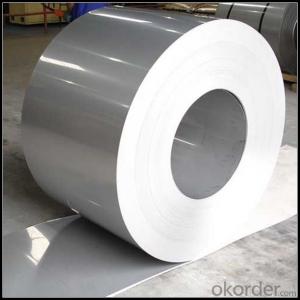Aluminum Foil: A Kitchen Staple with a Health Controversy
We’ve all been there, standing in the kitchen, wrapping up leftovers or preparing a dish, and reaching for that shiny roll of aluminum foil. It’s a versatile, indispensable item in our daily lives. But have you ever stopped to wonder about the health implications of using aluminum foil? With so much talk about its potential dangers, it’s time to unravel the myths and get to the facts.
The Ubiquity of Aluminum Foil
Aluminum foil is everywhere. From food storage to cooking, it’s a go-to material for many. It’s lightweight, easy to use, and can be molded into various shapes. It’s also affordable, making it a popular choice for households and restaurants alike. But despite its prevalence, there’s a lingering concern about its safety.
Myths Surrounding Aluminum Foil and Health
Rumors have been circulating for years about the potential health risks associated with aluminum foil. Some of the most common myths include:
1. Aluminum Foil Causes Alzheimer’s Disease: This is perhaps the most widespread myth. The idea is that aluminum leaches into the food, enters the bloodstream, and eventually ends up in the brain, causing cognitive decline. However, scientific studies have debunked this myth. The World Health Organization and other health authorities have found no conclusive evidence linking aluminum exposure through foil to Alzheimer’s disease.
2. Aluminum Foil Leaches Toxic Metals: Another myth is that aluminum foil can leach harmful metals into your food. While it’s true that some metals can leach under certain conditions, aluminum foil is made of aluminum that is safe for food contact. It has been tested and approved by regulatory bodies worldwide.
3. Aluminum Foil is Bad for the Environment: The environmental impact of aluminum foil is often exaggerated. Yes, it’s not biodegradable, but it is recyclable. Many communities have recycling programs in place for foil, and when recycled, it can be turned into new products, reducing its environmental footprint.
The Science Behind Aluminum Foil Safety
So, what does the science say about the safety of aluminum foil? Let’s dive into some key points:
1. Aluminum Exposure: The human body is exposed to trace amounts of aluminum daily, not just from foil but also from water, air, and even some foods. However, the levels are typically well below the threshold that would cause harm.
2. Aluminum and the Body: Our bodies have mechanisms to regulate and excrete excess aluminum. The kidneys play a crucial role in this process, ensuring that only a minimal amount of aluminum remains in the body.
3. Cooking with Aluminum Foil: When cooking with aluminum foil, it’s important to follow some best practices. Avoid using foil with acidic or alkaline foods, as this can increase the likelihood of aluminum leaching. Also, avoid using scratched or damaged foil, as this can expose more aluminum to your food.
The Benefits of Using Aluminum Foil
Despite the myths, there are several benefits to using aluminum foil:
1. Food Preservation: Aluminum foil is excellent for preserving the freshness of food. It creates a barrier that prevents air from reaching the food, keeping it fresh for longer periods.
2. Portion Control: Using foil to wrap individual portions can help with portion control, which is beneficial for weight management and reducing food waste.
3. Easy Cleanup: Foil makes cleanup a breeze. Whether you’re using it to line a baking sheet or to wrap food for storage, it can be easily disposed of after use, reducing the amount of washing up.
4. Versatility in Cooking: Aluminum foil can be used in a variety of cooking methods, including baking, grilling, and steaming. It’s a versatile tool that can enhance your culinary creativity.
Making Informed Choices
In conclusion, while there are concerns about the use of aluminum foil, the facts show that it is safe for most people when used properly. It’s important to stay informed and make choices based on scientific evidence rather than myths. If you’re still concerned, consider using alternatives like parchment paper or reusable silicone mats for certain applications. But for many, aluminum foil remains a convenient and practical option in the kitchen.
Remember, the key is moderation and awareness. Use aluminum foil mindfully, and enjoy the benefits it offers without letting the myths dictate your choices.
So next time you’re in the kitchen, don’t hesitate to grab that roll of aluminum foil. Embrace its utility and convenience, and let the facts guide your decisions, not the fears.

